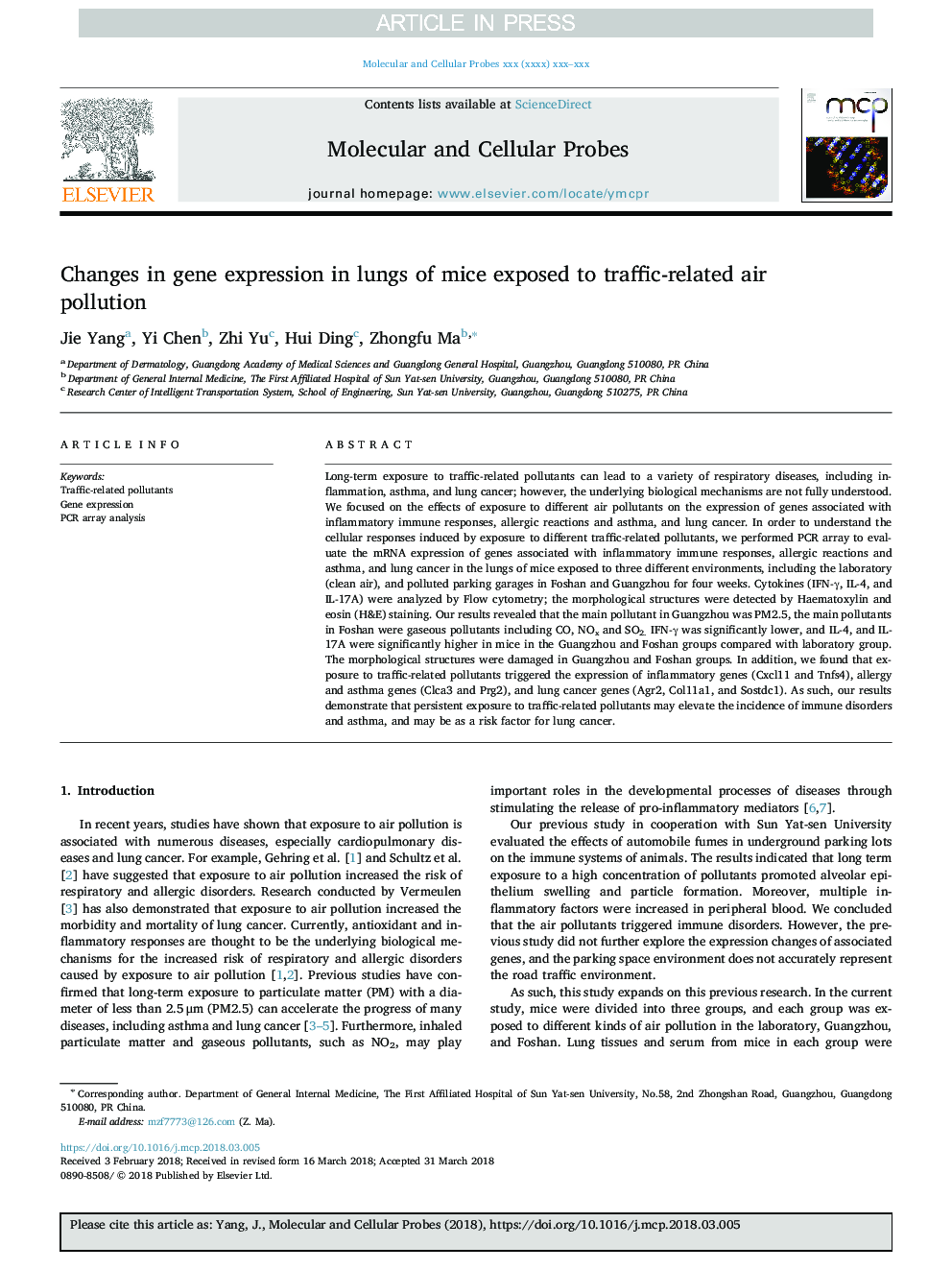| Article ID | Journal | Published Year | Pages | File Type |
|---|---|---|---|---|
| 8478726 | Molecular and Cellular Probes | 2018 | 8 Pages |
Abstract
Long-term exposure to traffic-related pollutants can lead to a variety of respiratory diseases, including inflammation, asthma, and lung cancer; however, the underlying biological mechanisms are not fully understood. We focused on the effects of exposure to different air pollutants on the expression of genes associated with inflammatory immune responses, allergic reactions and asthma, and lung cancer. In order to understand the cellular responses induced by exposure to different traffic-related pollutants, we performed PCR array to evaluate the mRNA expression of genes associated with inflammatory immune responses, allergic reactions and asthma, and lung cancer in the lungs of mice exposed to three different environments, including the laboratory (clean air), and polluted parking garages in Foshan and Guangzhou for four weeks. Cytokines (IFN-γ, IL-4, and IL-17A) were analyzed by Flow cytometry; the morphological structures were detected by Haematoxylin and eosin (H&E) staining. Our results revealed that the main pollutant in Guangzhou was PM2.5, the main pollutants in Foshan were gaseous pollutants including CO, NOx and SO2. IFN-γ was significantly lower, and IL-4, and IL-17A were significantly higher in mice in the Guangzhou and Foshan groups compared with laboratory group. The morphological structures were damaged in Guangzhou and Foshan groups. In addition, we found that exposure to traffic-related pollutants triggered the expression of inflammatory genes (Cxcl11 and Tnfs4), allergy and asthma genes (Clca3 and Prg2), and lung cancer genes (Agr2, Col11a1, and Sostdc1). As such, our results demonstrate that persistent exposure to traffic-related pollutants may elevate the incidence of immune disorders and asthma, and may be as a risk factor for lung cancer.
Keywords
Related Topics
Life Sciences
Biochemistry, Genetics and Molecular Biology
Cell Biology
Authors
Jie Yang, Yi Chen, Zhi Yu, Hui Ding, Zhongfu Ma,
